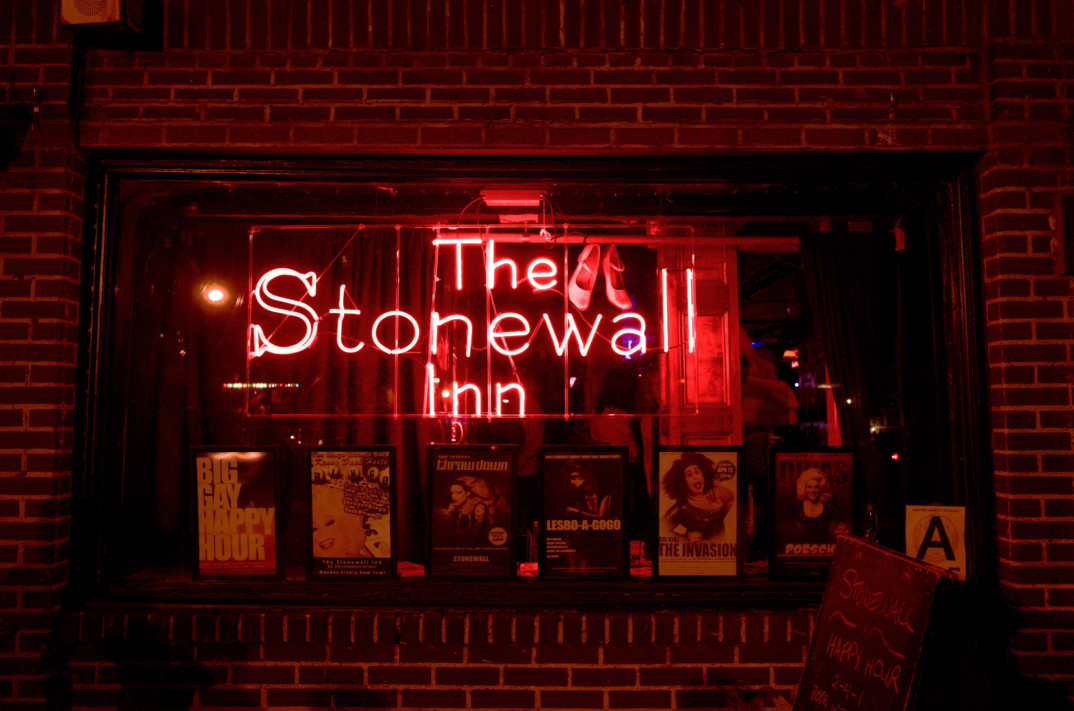Whitewashing Stonewall
In just a few weeks, audiences around the country will have the chance to watch the Stonewall Inn riots of 1969 play out before their eyes. Over 45 years after the riots that sparked the LGBT movement in America, the events that took place at the Stonewall Inn will once again be immortalized in film. Directed by Roland Emmerich, Stonewall will come to theatres in September, promising to explore the story of “A young man’s political awakening and coming of age during the days and weeks leading up to the Stonewall Riots.”
It sounds like a recipe for an inspirational movie about social activism, a trail recently blazed by films like Selma. But whereas Selma has been praised for their historical accuracy, the story apparently told by Stonewall has caused alarm for many. Their dismay is not out of place; while many historical accounts credit drag queens, lesbians and trans women of color, such as Marsha P. Johnson, with leading the riots, the protagonist of the film is a cisgender, white, gay man from the Midwest. It is this character who is the center of the film’s tale, and, from the clips presented in the trailer, also appears to be the character who starts the riots.
The resultant backlash over the film’s trailer has already seen some calling out what they see as whitewashing Stonewall’s legacy. Placing a white, cisgender male at the middle of the Stonewall story, they argue, ultimately erases the fact that the riots were led by different communities entirely, especially trans women of color. As petitions calling for a boycott of the movie surpass 20,000 signatures online, it is clear that the film’s September release will be marked by controversy.
In some regards, the apparent whitewashing present in Stonewall is not unique. Comparisons could be made to films like the recent Exodus: Gods and Kings and the upcoming origin story of Peter Pan, movies also criticized for their whitewashed casts. In these cases, creating an ancient Egypt mysteriously populated by light-skinned protagonists (complete with a white-featured Sphinx) or casting a white actress in the role of Tiger Lilly is not just an artistic choice. It is also a marginalizing one, denying people of color diverse representations in film, but also overlooking the many non-white actors and actresses who could have filled roles ultimately given to white people.
However, Stonewall’s case of whitewashing is different. If the movie is anything like its trailer, Stonewall’s example is not simply erasing underrepresented communities from stories or roles that should include them – in itself, an unacceptable overstep. It seems more egregious that trans women of color and non-white members of the LGBT community are seemingly being erased from the foundational struggle that they led, their roles being replaced and condensed down into a white, cisgender gay man.
Representation in Stonewall matters precisely because of the riots’ political and social context – one in which members of the LGBT community, led by trans women of color, rebelled against marginalization at the hands of the NYPD. The whitewashing that Stonewall’s trailer suggests is even more offensive given the adversity that trans women of color still face. Erasing their history in favor of a white, cisgender protagonist ultimately helps obscure the struggles that non-white and transgender members of the LGBT community continue to face.
It is yet to be seen whether the full movie will be as problematic as the trailer suggests. Emmerich has said that, contrary to reactions to the trailer, the final product will accurately portray the events that transpired in 1969. To be fair, this may be the case. Stonewall may well be a tale chronicling the accomplishments of people like Marsha P. Johnson and Sylvia Rivera, who many argue helped lead the riots that night. However, if its trailer is any indication, audiences should approach the film’s rendition of history with extreme scrutiny.





